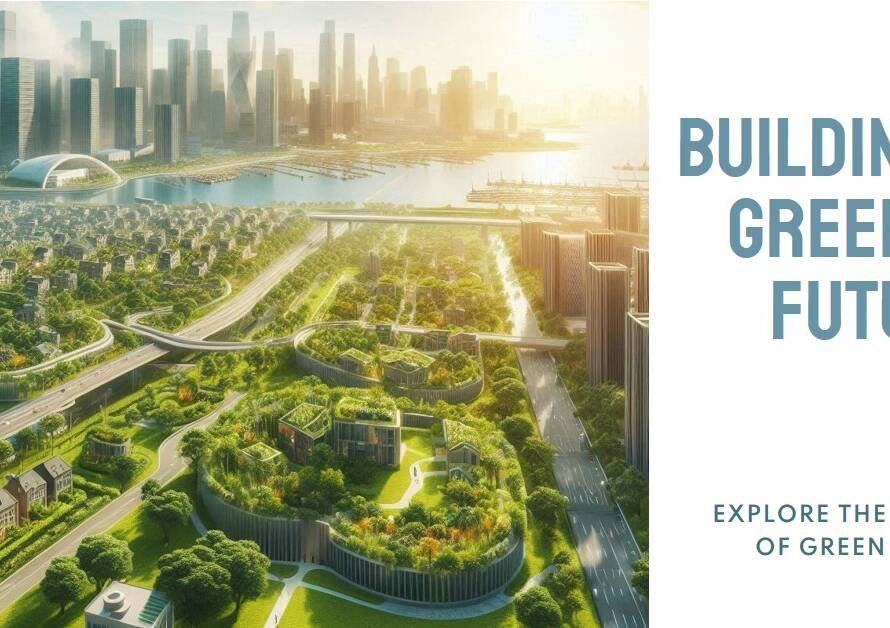
Table of Contents
- Introduction: Venturing into the Ghanaian Real Estate Market
- The Economic Landscape: Foundation for Real Estate Growth
- Urbanization Trends: Driving Demand for Housing
- Residential Real Estate: Meeting Diverse Housing Needs
- Commercial Real Estate: Supporting Business Growth
- Challenges and Opportunities: Navigating the Real Estate Landscape
- Investment Potential: Attracting Local and Foreign Investors
- Future Outlook: Sustaining Growth and Development
- Conclusion: Seizing Opportunities in Ghana’s Real Estate Market
Introduction: Venturing into the Ghanaian Real Estate Market
The real estate market in Ghana has been steadily growing over the past few years, offering numerous opportunities for investors, developers, and homeowners alike. With its stable economy, burgeoning middle class, and increasing urbanization, Ghana presents a promising landscape for real estate ventures. In this blog post, we will delve into the intricacies of the Ghanaian real estate market, exploring its dynamics, trends, challenges, and opportunities.
The Economic Landscape: Foundation for Real Estate Growth
Ghana’s economy has experienced consistent growth in recent years, driven by sectors such as oil and gas, agriculture, and services. This economic stability provides a solid foundation for the real estate market to thrive. Moreover, government initiatives aimed at improving infrastructure, such as roads, utilities, and transportation networks, further bolster the attractiveness of investing in real estate in Ghana. These developments not only enhance the quality of life for residents but also increase the value of properties across the country.
Urbanization Trends: Driving Demand for Housing
Rapid urbanization is a significant factor shaping the Ghanaian real estate market. As more people migrate from rural to urban areas in search of better opportunities, the demand for housing continues to rise. Cities like Accra, Kumasi, and Takoradi are experiencing significant population growth, leading to increased demand for residential, commercial, and mixed-use developments. This trend presents lucrative opportunities for investors to capitalize on the growing need for housing and infrastructure in urban centers.
Residential Real Estate: Meeting Diverse Housing Needs
The residential real estate sector in Ghana is multifaceted, catering to a diverse range of housing needs and preferences. From luxury apartments in upscale neighborhoods to affordable housing solutions for low-income earners, the market offers options for various income levels. Developers are increasingly focusing on mixed-use developments that combine residential, commercial, and recreational spaces to create vibrant communities that meet the needs of modern urban dwellers.
Commercial Real Estate: Supporting Business Growth
In tandem with the expansion of residential developments, the commercial real estate sector in Ghana is also witnessing growth. The demand for office spaces, retail outlets, and industrial facilities is driven by the country’s thriving business environment and increasing foreign investment. As Ghana positions itself as a hub for commerce and trade in the West African region, the demand for quality commercial real estate is expected to remain robust, presenting opportunities for investors to capitalize on the burgeoning market.


Challenges and Opportunities: Navigating the Real Estate Landscape
While the Ghanaian real estate market offers significant opportunities, it is not without its challenges. One such challenge is the issue of land tenure, which can be complex and fraught with legal uncertainties. Additionally, inadequate infrastructure, such as reliable electricity and water supply, can pose challenges for developers and investors. However, these challenges also present opportunities for innovative solutions and partnerships between the public and private sectors to address infrastructure gaps and streamline land acquisition processes.
Investment Potential: Attracting Local and Foreign Investors
Ghana’s real estate market has garnered increasing interest from both local and foreign investors seeking to capitalize on its growth potential. With a growing middle class, favorable demographics, and a stable political environment, Ghana offers a conducive investment climate for real estate projects. Furthermore, initiatives such as the Ghana Investment Promotion Centre (GIPC) Act and the establishment of special economic zones provide incentives and support for investors looking to venture into the real estate market.
Future Outlook: Sustaining Growth and Development
Looking ahead, the future of the real estate market in Ghana appears promising, fueled by continued economic growth, urbanization, and government initiatives to improve infrastructure and housing affordability. However, sustaining this growth will require concerted efforts from stakeholders across the public and private sectors to address challenges such as land tenure issues, infrastructure deficiencies, and regulatory barriers. By fostering collaboration and innovation, Ghana can unlock the full potential of its real estate market and create lasting value for investors and communities alike.
Conclusion: Seizing Opportunities in Ghana’s Real Estate Market
In conclusion, the Ghanaian real estate market offers a wealth of opportunities for investors, developers, and homeowners looking to capitalize on the country’s economic growth and urbanization trends. With a stable economy, growing middle class, and supportive government policies, Ghana provides a conducive environment for real estate ventures of all scales. While challenges exist, they are outweighed by the potential for growth and development in this dynamic and evolving market. By understanding the market dynamics, embracing innovation, and fostering collaboration, stakeholders can unlock the full potential of real estate in Ghana and contribute to its continued prosperity.


